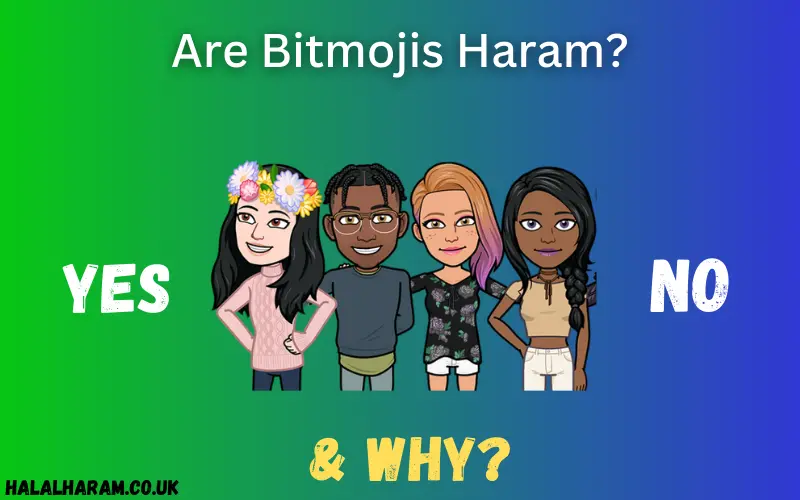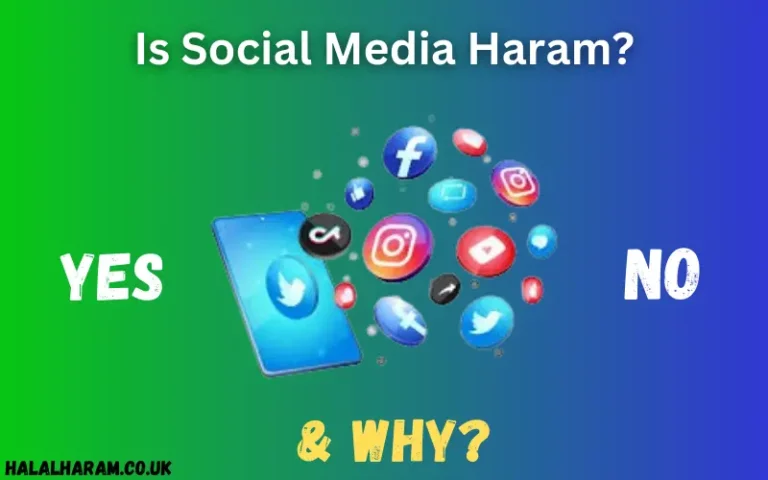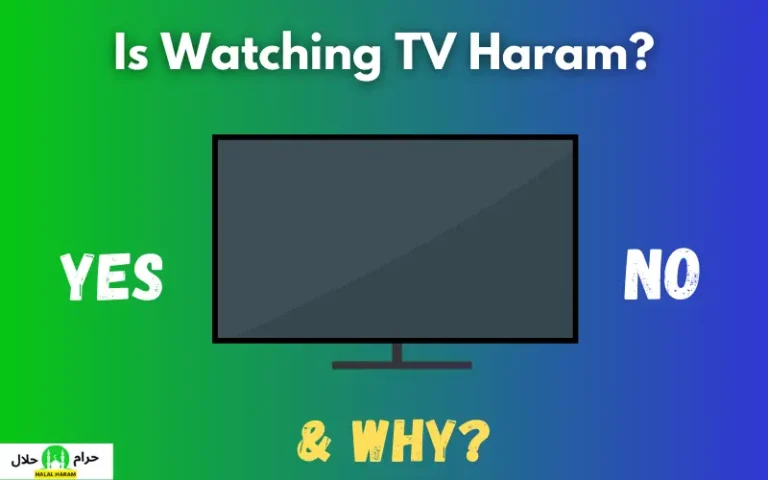Are Bitmojis Haram Or Halal In Islam?
Bitmojis have become increasingly popular over the years, as they provide a fun and creative way to express ourselves through digital communication.
However, with the rise of technology and social media, many people have started questioning the religious implications of using bitmojis.
Specifically, some individuals are wondering if using bitmojis is considered haram or forbidden in Islam. If you’re also curious about this topic, then you’ve landed in the right place.
In this blog post, we will answer are bitmojis haram or halal in Islam and explore the different perspectives on this matter. Let’s dive in.

Are Bitmojis Haram?
Yes, most of the bitmojis are haram according to Islamic teachings. This is because creating and using images of living beings, whether they are humans or animals, is prohibited in Islam.
The reasoning behind this prohibition is that bitmoji has a complete human face including eyes, nose, and ear, and Islam discourages the representation of living beings in any form.
In fact, there is a hadith narrated by Aisha (RA), the wife of Prophet Muhammad (PBUH), where she says:
“Those responsible for this image will face consequences on the day of resurrection. They will be challenged to bring to life what they have created.” (Sahih Bukhari)
This hadith clearly states the severity of creating and using images of living beings in Islam.
However, also note that if the bitmojis missing any of the facial features mentioned above, then it is considered less severe and may be permissible in some schools of thought.
Moreover, there are some exceptions to this rule. For example, creating images for educational or medical purposes is allowed in Islam as long as they serve a beneficial purpose and do not promote idolatry or worship of any kind.
But avoid making or using it for fun or entertainment purposes, as it goes against the teachings of Islam.
If you play Ludo, learn here is ludo halal.
Why Bitmojis Haram And Not Emojis?
Some may argue that if bitmojis are haram, then why emojis aren’t? After all, they also represent human faces and emotions.
But the difference lies in the level of detail and resemblance to real-life beings. Emojis are simple and generic symbols that do not have specific facial features, whereas bitmojis are personalized and often resemble a person’s appearance.
Moreover, emojis have a long history of being used in digital communication and are widely accepted by society. On the other hand, bitmojis are relatively new and often associated with vanity and self-promotion.
Also, emjois don’t have clear eyes, noses, and ears but bitmojis have all of them, and that’s why they are considered more severe according to Islamic teachings.
Also see is Fortnite haram.
Disadvantages Of Using Bitmojis
Now, you might be wondering what’s the harm in using bitmojis? After all, it’s just a cartoon version of yourself or others, and you’re not worshiping or promoting idolatry.
Well, besides going against Islamic teachings, there are some practical disadvantages to using bitmojis as well:
- It promotes vanity and self-promotion: Bitmojis are often used to create a perfect, idealized version of oneself and promote it on social media. This can lead to feelings of inferiority in others and negatively impact their self-esteem.
- It goes against the concept of modesty: In Islam, modesty is highly valued, and using bitmojis may go against this concept by promoting self-admiration and drawing attention to oneself.
- It distracts from real-life interactions: Constantly using bitmojis in digital communication can take away from the authenticity of human interaction. Instead of expressing ourselves through words and actions, we rely on cartoon avatars.
- Islam discourages making human images, even for fun: As mentioned before, creating and using images of living beings goes against Islamic teachings, regardless of the intention or purpose behind it.
Alternatives To Bitmojis
If you’re someone who enjoys using bitmojis but wants to follow Islamic teachings, don’t worry. There are alternatives that you can use instead:
- Use non-human avatars: Instead of creating a bitmoji that resembles yourself, you can opt for cartoon animals or objects as your avatar. This way, you still get to express yourself creatively without going against Islamic teachings.
- Stick to plain text: Sometimes, words can be more powerful than images. Instead of relying on bitmojis to convey your message, try using descriptive and expressive language to communicate your thoughts and emotions.
- Use emojis: While emojis may not be completely free of controversy, they are widely used and accepted in society. Plus, they don’t have the level of detail as bitmojis, making them less severe in Islamic teachings.
Ultimately, it’s important to remember that our actions should align with our beliefs and values. If using bitmojis goes against your religious beliefs, then it’s best to avoid them and look for alternatives that are permissible in Islam.
Also learn about Roblox on is Roblox halal.
FAQs
Q. Is Snapchat Bitmoji Haram?
A. Yes, using Snapchat bitmojis is considered haram in Islam as they have human facial features and resemble real-life beings.
Q. Is it haram to make an avatar on Roblox?
A. Yes, creating and using avatars on Roblox that have human-like features is considered haram in Islam.
Q. Is Snapchat filters haram?
A. It depends on the filter being used. If the filter adds human-like features or alters one’s appearance, then it may be considered haram in Islam. However, filters that do not portray living beings are permissible to use.
Conclusion
In conclusion, using bitmojis is generally considered haram in Islam due to their resemblance to real-life beings and going against the concept of modesty.
However, there are alternatives that one can use to express themselves creatively without going against religious teachings.
It’s important to remember that our actions should align with our beliefs and values, and we should always strive to follow the teachings of our faith.
So, it is better to avoid using bitmojis as they go against Islamic teachings and promote vanity and self-promotion.
I hope your query are bitmojis haram has been answered and you have a better understanding of the topic. May we all strive to follow our religious teachings in all aspects of our lives. So, let’s be mindful of our actions and strive to do what is right in the eyes of Islam.




